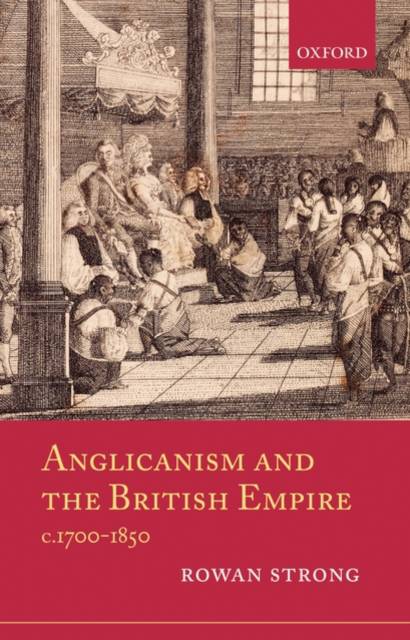
Bedankt voor het vertrouwen het afgelopen jaar! Om jou te bedanken bieden we GRATIS verzending (in België) aan op alles gedurende de hele maand januari.
- Afhalen na 1 uur in een winkel met voorraad
- In januari gratis thuislevering in België
- Ruim aanbod met 7 miljoen producten
Bedankt voor het vertrouwen het afgelopen jaar! Om jou te bedanken bieden we GRATIS verzending (in België) aan op alles gedurende de hele maand januari.
- Afhalen na 1 uur in een winkel met voorraad
- In januari gratis thuislevering in België
- Ruim aanbod met 7 miljoen producten
Zoeken
€ 241,95
+ 483 punten
Omschrijving
Between 1700 and 1850 the Church of England was the among the most powerful and influential religious, social, and political forces in Britain. This was also a momentous time for the British Empire, during which it developed and then lost the North American colonies, extended into India, and settled the colonies of Australia and New Zealand. Public understanding of this expanding empire was influentially created and promulgated by the Church of England as a consequence of its missionary engagement with these colonies, and its role in providing churches for British settlers. Rowan Strong examines how that Anglican Christian understanding of the British Empire shaped the identities both of the people living in British colonies in North America, Bengal, Australia, and New Zealand during this period - including colonists, indigenous peoples, and Negro slaves - and of the English in Britain.
Specificaties
Betrokkenen
- Auteur(s):
- Uitgeverij:
Inhoud
- Aantal bladzijden:
- 336
- Taal:
- Engels
Eigenschappen
- Productcode (EAN):
- 9780199218042
- Verschijningsdatum:
- 6/09/2007
- Uitvoering:
- Hardcover
- Formaat:
- Genaaid
- Afmetingen:
- 140 mm x 216 mm
- Gewicht:
- 571 g

Alleen bij Standaard Boekhandel
+ 483 punten op je klantenkaart van Standaard Boekhandel
Beoordelingen
We publiceren alleen reviews die voldoen aan de voorwaarden voor reviews. Bekijk onze voorwaarden voor reviews.









